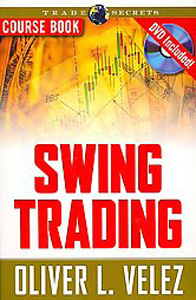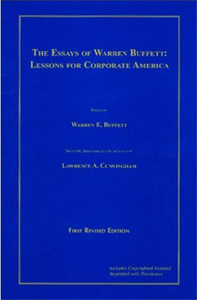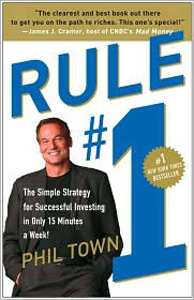Glossary of Stock Trading and Investment Terminology
The theory of efficient-market hypothesis (EMH) argues that the financial markets are efficient and the price of stocks constantly reflects all the available information. EMH suggests that no particular investor has access to any information that is not available to other traders. Therefore, a trader cannot make profit at the expense of another.
Funds that try to make profit by investing on under priced stocks are known as value funds. A value fund looks for cheap stocks that it considers being under valued by the market and invests on such shares with expectations of making profit in future when these shares will rebound with increased demand.
Value Funds: Determining Stocks to Invest
The term "Dividend Imputation" refers to a particular corporate taxation system under which the tax paid by a business organisation is attributed completely or partially to the investors (shareholders) in the form of tax credit which allows the organisation to slash its income tax payable on the distribution of its earnings.
Call option provides the right to a trader to buy an instrument (say for example stocks) at a predetermined price at or before the expiry date. However, exercising this option is not an obligation. It depends on the trader whether he will go for the call option or not.
A non-renounceable rights issue is when a company offers its shareholders the right to purchase more of the company's stock, usually at a discount to market rate. Compared to renounceable rights, the offer is not transferable to other parties and cannot be bought or sold. Issuing more shares of a stock dilutes the value of current outstanding stock on the market.
If you want to trade the overall stock market with a single trade, then Share Price Index Futures or SPI futures and options and the options contracts might be the right choice. Trading the SPI 200 is similar to trading a balanced share portfolio that tracks the S&P/ASX index. Share Price Index Futures tracks the S&P/ASX 200 index and considered most popular among the future contracts. It is to be mentioned that in case of the SPI, the transaction can be filled within seconds.
Relation between SPI 200 and S&P/ASX 200
The term agribusiness investments refer to investments in various agricultural sectors including timber and wine. In the case of agribusiness investments, an investor grows crop and the cost involved with it (which includes the expense of establishment and ongoing expenses) is normally considered as business expenses which are tax-deductible against other earnings. The earnings that a crop grower generates through the sale of the crop are considered as assessable income.
Benefits of investing in Agribusiness
Just like the equity market, Forex is also quoted by the bid and ask prices where the difference or gap between the bid and ask is termed as the “Spread”. It is important to keep in mind that Forex trading is not commission free. As far as the Forex is taken under consideration, the brokers might come up with the claim that they do not charge any typical brokerage but instead of that, the commission is added in the spread.
When investing bottom up, individual shares and companies are researched and analysed. Investments are made based on future forecasts, rather than market cycles. Bottom up investing is recommended for investors who are familiar with the market. It is not a recommended strategy for those who make global-scale investments.
The Price-to-Book Ratio or P/B Ratio is determined by dividing the current closing price of a stock by the book value per share of the latest quarter. P/B Ratio is termed as price-equity ratio too.
Interpreting the Price-to-Book Ratio
- How to Trade Forex and Gold Options
- How to Trade the Gold Price and Profit!
- Forex Trading the EUR/USD Pair € EURO and $ US Dollar
- How to Trade Stock Market Indices S&P500
- How to Trade Crude Oil
- Forex Trading Psychology
- What Are Broker Recommendations?
- Free Tickets to Trading & Investing Seminar & Expo ($18) Brisbane 2013
- Stock Calc App
- All About Warrants
- Introduction to Exchange Traded Funds
- Introduction to Exchange Traded Funds: Features
- Introduction to Exchange Traded Funds: Domestic ETFs
- Introduction to Exchange Traded Funds: International ETFs
- Exchange Traded Commodities
- Australian Stock Scan
- Australian Online Share Trading
- List of Trading Books
- Interesting Thoughts about the Australian Dollar
- What's the Meaning of Hawkish?
- Do You Know How To Use the P/E Ratio
- Trading, Religion and Politics - Do They Have Anything in Common?
- Shares that are Volatile that Double and Half in the Short Term
- Telstra (TLS) T3
- Margin Call by E-mail
- The Cost of Holding a Position
- Lack of Disclosure: Compensation from ASX Listed Company
- Unrealistic Returns and Benchmarks
- CMC Markets Down
- Quality versus Quantity Forex Trading
- Woolworths 1H Sales $30.7bn up 3.2%
Date added 31-01-2013 - ASIC Fines CommBank's CommSec
Date added 25-09-2012 - Industry Super Network Calls to Ban High Frequency Trading (HFT)
Date added 22-09-2012 - NAB Launches Online Share Trading Platform
Date added 19-09-2012 - Reserve Bank of Australia Says 23 Countries Holding AUD
Date added 18-09-2012 - Australia Post Digital Mailbox
Date added 10-09-2012 - Winners and Losers of Trading for Week 2
Date added 16-01-2012 - 2012's First Week of the Best and Worst Traded Stocks
Date added 09-01-2012 - 2011's Last Best and Worst Traded Stocks
Date added 05-01-2012 - Best and Worst Pre-Christmas Traded Stocks
Date added 30-12-2011 - Trading Winners and Losers for Dec. 12-16
Date added 19-12-2011 - Best and Worst Traded Stocks for Dec. 5-9
Date added 13-12-2011 - Top 3 Best and Worst Traded Stocks
Date added 05-12-2011 - ASX Glitch Trading Halt
Date added 27-10-2011 - Worst Trade Stocks (and the Best)
Date added 06-08-2011
Top 150 Public Companies Listed on the Australian Stockmarket as at 29/05/2009
- BHP Billiton
- Westpac Banking Corporation (WBC)
- Commonwealth Bank of Australia (CBA)
- National Australia Bank (NAB)
- Telstra (TLS)
- ANZ
- News Corporation (NWS)
- Woolworths Limited(WOW)
- Woodside Petroleum Limited (WPL)
- Rio Tinto
- Westfield Group (WDC)
- Westfarmers Limited (WES)
- QBE Insurance
- CSL
- Newcrest Mining Limited (NCM)
- Origin Energy Limited (ORG)
- Santos Limited (STO)
- AMP Limited (AMP)
- Macquarie Group (MQG)
- Foster’s Group Limited (FGL)



